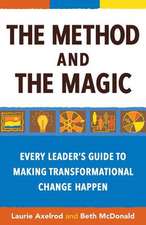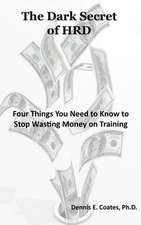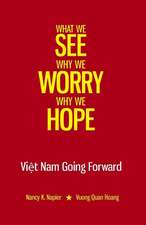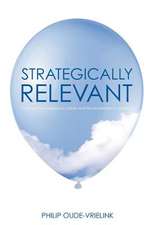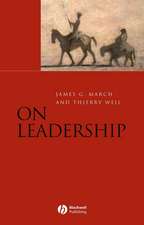The Ambiguities of Experience: Messenger Lectures
Autor James G. Marchen Limba Engleză Paperback – 2 apr 2017
In The Ambiguities of Experience, James G. March asks a deceptively simple question: What is, or should be, the role of experience in creating intelligence, particularly in organizations? Folk wisdom both trumpets the significance of experience and warns of its inadequacies. On one hand, experience is described as the best teacher. On the other hand, experience is described as the teacher of fools, of those unable or unwilling to learn from accumulated knowledge or the teaching of experts. The disagreement between those folk aphorisms reflects profound questions about the human pursuit of intelligence through learning from experience that have long confronted philosophers and social scientists. This book considers the unexpected problems organizations (and the individuals in them) face when they rely on experience to adapt, improve, and survive.
While acknowledging the power of learning from experience and the extensive use of experience as a basis for adaptation and for constructing stories and models of history, this book examines the problems with such learning. March argues that although individuals and organizations are eager to derive intelligence from experience, the inferences stemming from that eagerness are often misguided. The problems lie partly in errors in how people think, but even more so in properties of experience that confound learning from it. "Experience," March concludes, "may possibly be the best teacher, but it is not a particularly good teacher."
| Toate formatele și edițiile | Preț | Express |
|---|---|---|
| Paperback (1) | 93.60 lei 3-5 săpt. | |
| MB – Cornell University Press – 2 apr 2017 | 93.60 lei 3-5 săpt. | |
| Hardback (1) | 155.47 lei 3-5 săpt. | |
| MB – Cornell University Press – 7 apr 2010 | 155.47 lei 3-5 săpt. |
Preț: 93.60 lei
Nou
Puncte Express: 140
Preț estimativ în valută:
17.91€ • 18.56$ • 14.95£
17.91€ • 18.56$ • 14.95£
Carte disponibilă
Livrare economică 01-15 martie
Preluare comenzi: 021 569.72.76
Specificații
ISBN-13: 9781501716171
ISBN-10: 1501716174
Pagini: 168
Dimensiuni: 127 x 202 x 13 mm
Greutate: 0.19 kg
Editura: MB – Cornell University Press
Seria Messenger Lectures
ISBN-10: 1501716174
Pagini: 168
Dimensiuni: 127 x 202 x 13 mm
Greutate: 0.19 kg
Editura: MB – Cornell University Press
Seria Messenger Lectures










